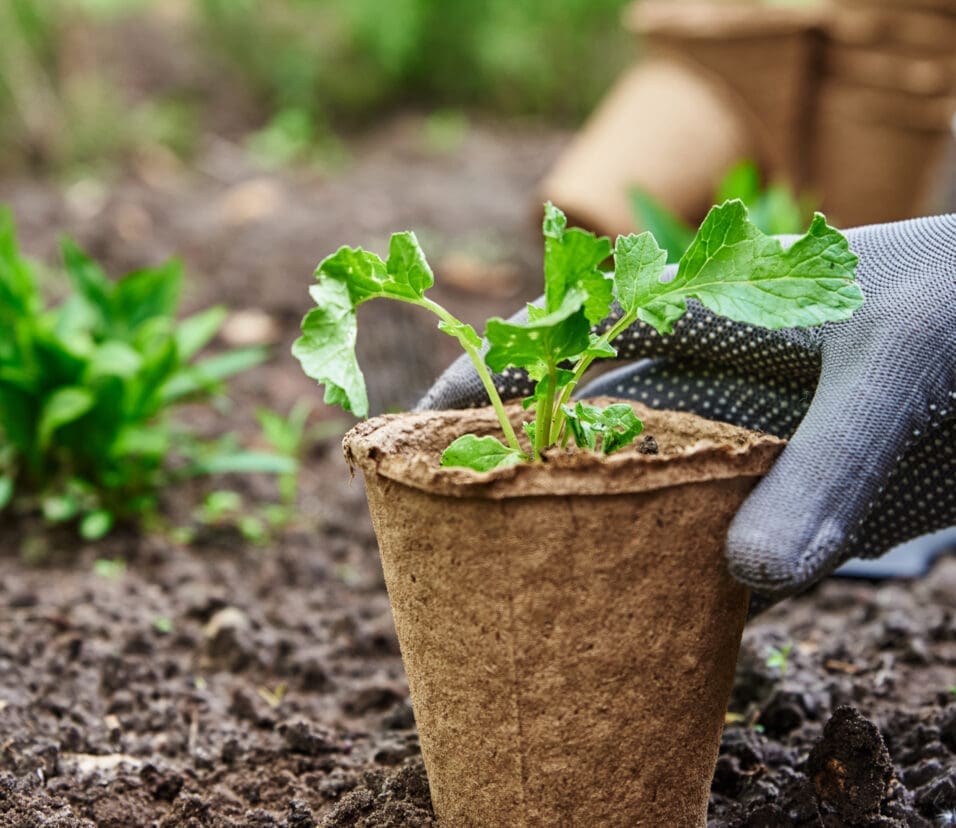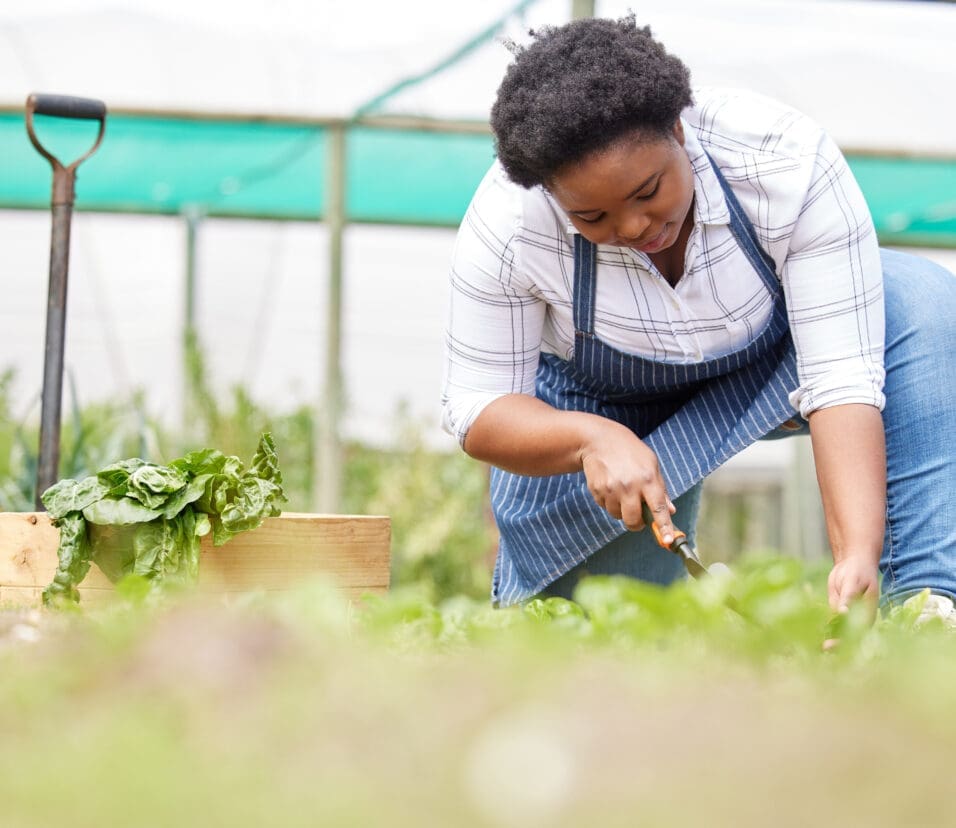10 Tips for Beginner Farmers
How to Start Farming on your Land
In the Caribbean, many people are drawn to the idea of starting subsistence farms and living off the land, especially since the effects of the Covid-19 pandemic which has led to worldwide food shortages and a significant increases in supermarket prices.
However, the issues of doubt and procrastination occur because people do not know how to bring this idea to life. Feelings of overwhelm present themselves due to the prospect of taking on all that is needed for farming; such as learning about soil health, crop management, livestock care, and much more. The task can be extremely daunting with all of the knowledge required to bring success.
Thankfully, there are plenty of resources available to those who are interested; from books that cover basic principles and guidelines, to helpful websites and articles that provide more detailed information on various topics related to farming. Also, courses are available online and even in-person workshops that provide hands-on training for animal care or help you to develop a successful farm business plan. Additionally, certain organisations are dedicated solely to promoting sustainable agriculture practices through research and certification programmes. Agricultural magazines and periodicals specifically designed for farmers also provide an abundance of useful information.
Whether you’re looking to get started on a small-scale urban farm or plan to invest in larger, more commercial operations, there are some important tips every beginner should know. We are committed to helping aspiring farmers succeed by providing the necessary knowledge and support systems.
Take a look at these 10 tips which can assist you by making your transition to farming easier and more efficient.
- RESEARCH YOUR LOCATION
Before you start planting, do your research! Make sure that the area you are interested in is suitable for growing the types of crops you want to produce and has access to the necessary resources (water, soil fertility, etc.). Additionally, consider any environmental hazards or restrictions that may impact your ability to operate a successful farm. While this type of research may seem tedious at first, it is essential in ensuring your farm can have the future ability to provide you with a bountiful harvest. Take your time with this part of the process as researching helps map out a successful plan for your future as a farmer.
- CONSIDER YOUR CLIMATE
It’s important to consider what type of climate you will be working with. Different crops can be better suited for different climates and weather patterns, making this an important factor when deciding what crops you want to grow. For example, certain fruits like mangoes may require more moisture than other crops like cassava. This is why it’s so important to make sure that you understand what climate conditions your chosen crop needs before starting out.
- DEVELOP A PLAN
It’s essential to have a clear plan of action before starting your farm, as well as specific goals for both short-term and long-term success. This plan should include details about finances (start-up costs, ongoing expenses), marketing strategies (social media promotion, customer outreach), and production methods (organic vs non-organic methods). Having these details worked out from the beginning will save you time and money down the road.

- INVEST IN QUALITY EQUIPMENT
Quality equipment is key when it comes to running any successful farm, since it helps to ensure that your operation runs efficiently and safely without any unexpected delays or accidents due to malfunctioning equipment. Quality equipment also lasts longer than cheaper models. Therefore, it’s worth investing in durable items whenever possible.
- LEARN ABOUT PEST MANAGEMENT
Pests can be one of the biggest challenges faced by farmers. This is why it’s important to learn about pest management techniques such as crop rotation, companion planting, and natural predators or repellents before starting out on your own farm venture. The more knowledgeable you are about managing pests, the better chance you’ll have at keeping them from destroying your hard work!
- UTILISE TECHNOLOGY
Technology has revolutionised farming over the past decade with advances in automation making farming processes faster and easier than ever before. Utilising technology such as automated irrigation systems or soil sensors can help maximise efficiency while saving time which means less manual labour for you.
- NETWORK WITH OTHER FARMERS
Don’t underestimate how useful networking with other farmers can be. Forming relationships with local farmers who already have experience in running their own farms can provide valuable insight into potential problems or solutions that beginners might not think of on their own. Plus, it’s always nice having someone else who understands what you’re going through when running your farm business.
- INVEST TIME AND MONEY INTO MARKETING
You won’t be able to sell anything unless people know about it first. It’s imperative for you to invest time and money into creating effective marketing campaigns that target potential customers both locally and nationally/internationally, depending on where you plan on selling your products. Good marketing can make all the difference between success and failure when running any business; including farming ventures.
- TAKE CARE OF YOURSELF
Running any business requires lots of hard work and dedication, but don’t forget about taking care of yourself as well! Make sure that you schedule regular breaks away from work so that you can rest and recharge. Failing to do this can inevitably lead to burnout if not taken seriously enough. Also remember, that investing in yourself is just as important as investing in your business because both need nurturing if either one wants to succeed on a long-term basis.
- HAVE FUN WITH IT
Most people decide to become farmers because they love it and find joy in doing something new, creative and meaningful with their lives, no matter how difficult things can sometimes get along the way. Enjoying what we do makes all of our efforts worthwhile, so remember why farming matters even during tough times; because food is literally a sustainer of life itself after all!

Avoiding the Necessary Tips can Lead to Failure
It is true that beginner farmers face many challenges, but the most important is understanding how best to care for your crops. Without proper attention and techniques, farming can quickly become a costly endeavour. This is why we have taken the time to explain to you the necessary steps required in order for success to be met.
If this sound information is ignored, potential issues could arise, such as:
- Wilting plants, diseased crops, infertile soil, and pest or animal damage due to a lack of proactive measures.
- Weather-related issues such as drought or floods may cause substantial losses if preparations are not carried out ahead of time.
- Experiencing significant financial losses which can open doors to a great deal of stress and disappointment.
A clear understanding of these issues is critical for farmers looking to start their own operations.
Taking heed to avoid Costly Farming Mistakes can help
The preceding tips for growing your own food and developing the necessary skills required can ensure you a plethora of success in no time. Following these tips can lead to :
- A decrease in the cost of food and easier access to healthier produce.
- More sustainable farming practices.
- Improved soil health and fertility.
- Better water conservation techniques and greater environmental awareness.
- An opportunity to explore creative systems of production in order to optimise their progress and output.
With these helpful tips as guidance, there is no limit to what ambitious farmers can achieve.
Starting up a new farm venture takes lots of hard work and requires specific knowledge and skill. But above all else, enthusiasm and dedication are key ingredients needed for success. Following these simple tips can help make your transition much smoother and enjoyable overall. With hard work and determination anything becomes possible, so don’t let anything stand in your way. A great journey lies ahead, awaiting your full potential to bring forth fruitful results!







